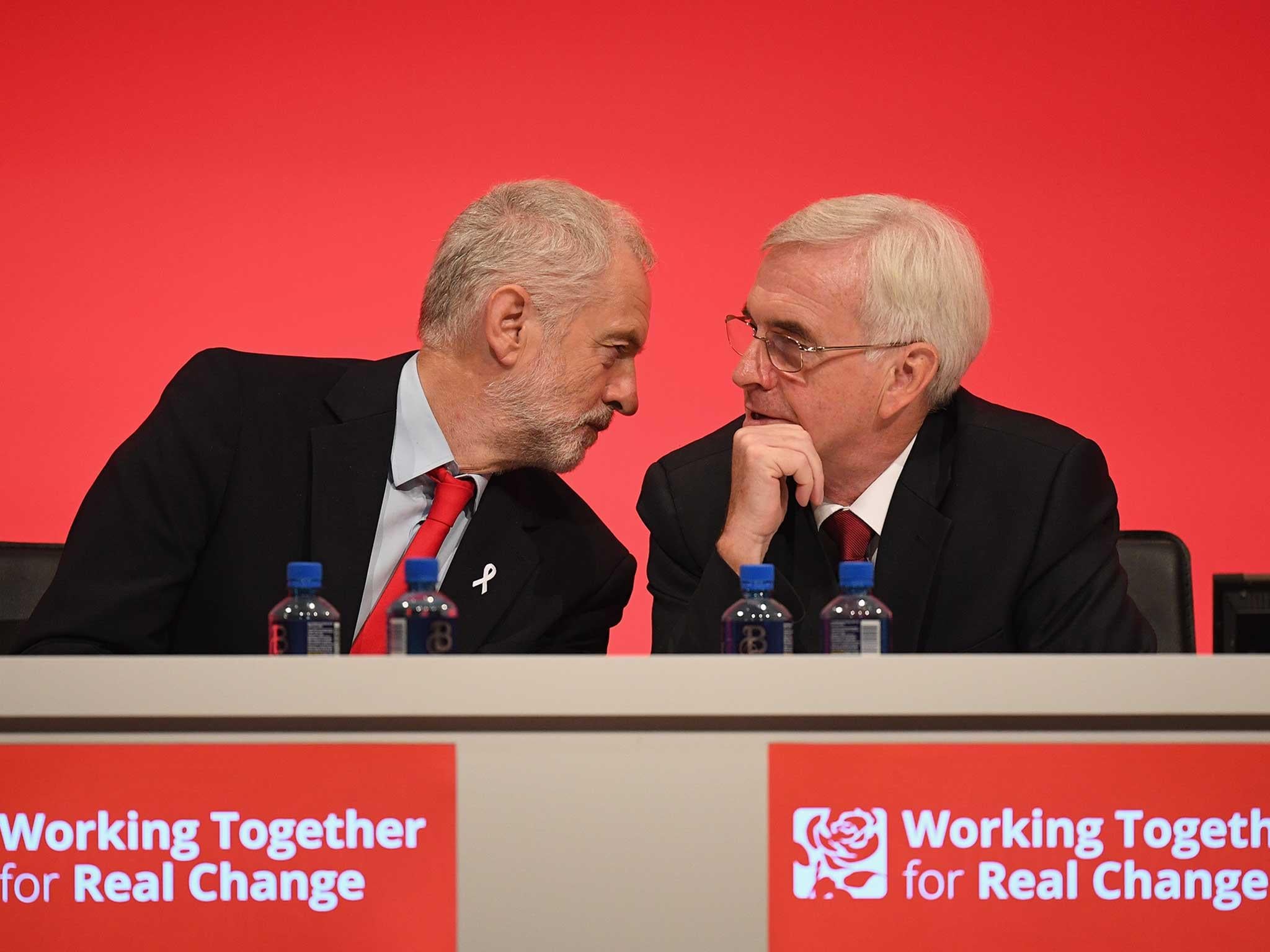Labour MPs have publicly debated for the first time whether a so-called “universal basic income” should be introduced to replace the existing benefits system.
The discussion, thought to be the first such event at any Labour party conference, heard from MPs both in favour, opposed, and undecided on the policy.
A universal basic income, sometimes called a ‘Citizen’s Income’ is the idea of a flat-rate unconditional cash payment to all adults and children, whether they are in or out of work.
Most proponents of the idea say it should replace the existing means tested benefits system, while others say such a payment could sit on top of current schemes.
John McDonnell, Labour’s shadow chancellor, told the room that a basic income was “an idea to explore” but suggested that may well be one “whose time has come”.
“I’m going to be accused of being a Fabian here, but I think we need to take a gradualist approach to achieve it,” he told the fringe meeting, organised by the think-tanks Compass and Christians On The Left.
“It might be one of those iconic policy areas that in ten years time we think ‘why did we think it was ever controversial’ and ‘why didn’t we do this before?’”
Mr McDonnell said any basic income would have to be introduced alongside changes to progressive taxation – either wealth or income.
He added: “We’ve got to argue that this isn’t something alien – this is something that’s been gradually emerging in our society for some time and this is actually the next step on.
“There’s an urgency about it at the moment because work is no longer lifting people out of poverty but you combine that with the restoration of trade union rights so you can transform that at the same time … that helps in terms of the overall redistribution of income overall, to enable people to live with decent living standards.”
Jonathan Reynolds, the MP for Stalybridge, said he believes Labour should be looking more closely at the policy.
“The first time I heard about this idea I thought it was pretty far-fetched – in fact I thought it was pretty utopian and unrealistic,” he said.
“Once, this idea was fairly left-field but I think more and more people are taking it seriously and I think they’re right to.”
Mr Reynolds said a basic income could help re-shape perceptions around the welfare state – such a media portrayals of unemployed people as “workshy”.
“We don’t feel that way about the NHS of the education system and we shouldn’t feel that way about the welfare state,” he said.
Mr Reynolds also suggested that the redesign of the welfare state might be useful to help people cope with technological change and the increased trend towards the casualisation of work, telling the audience: “I grew up in Sunderland in the 1980s and that was a time of deep industrial change. I know what it looks like when the mines go, when the shipyards go,” he said

Karen Buck, the MP for Westminster North, however said she was “deeply skeptical” of the proposal, arguing that flattening the social security system would see money spread too thinly for those who needed it.
“The problem is this: if you provide within the existing amount of money we are spending on tax and social security, a sum of money for everybody, it is simply not enough to provide everybody with more than a minimum subsistence,” she said.
“It is simply not enough for people to live on for any length of time,” she noted, adding that the policy “wouldn’t be redistributive”.
Ms Buck also suggested a basic income’s universal nature meant it might not be “saleable” to the electorate, that it included too few work incentives, and that it would be difficult to deal with housing costs and extra costs for disability under such a scheme.
The MP said that the existing welfare system could be improved that that punitive sanctions did not have to be a part of it.
Mr McDonnell has previously suggested that a trial of universal basic income could be included in Labour’s 2020 general election manifesto.
Basic income was also discussed at the campaign group Momentum's parallel The World Transformed conference held alongside Labour's in Liverpool this week.
The Government has dismissed universal basic income, with ministers telling Parliament the idea is too expensive and that it does not include enough work incentives.

Join our commenting forum
Join thought-provoking conversations, follow other Independent readers and see their replies
Comments